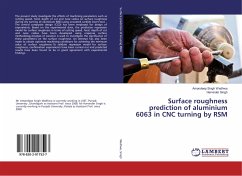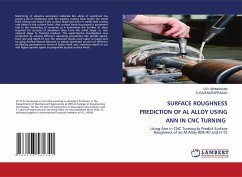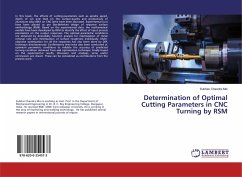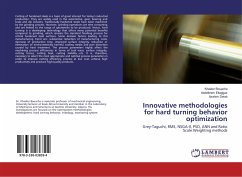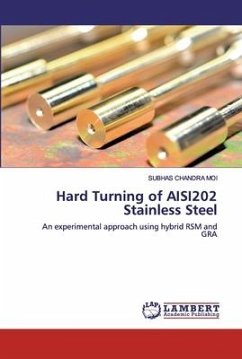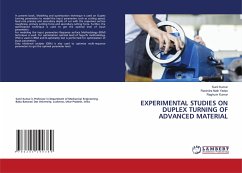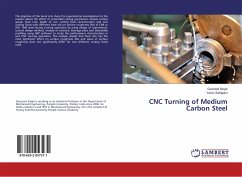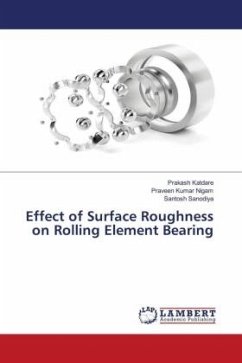The present study investigate the effects of machining parameters such as cutting speed, feed, depth of cut and nose radius on surface roughness during dry turning of aluminium 6063 using uncoated carbide insert tool. . The central composite design (CCD) has been employed for design of experiments. Based on the experimental data, the prediction regression model for surface roughness in terms of cutting speed, feed, depth of cut and nose radius have been developed using response surface methodology.Analysis of variance is used to investigate the significance of these parameters on the surface roughness. An attempt has also been made to obtain optimum machining conditions for achieving the minimum value of surface roughness. To validate regression model for surface roughness, confirmation experiments have been carried out and predicted results have been found to be in good agreement with experimental findings.

